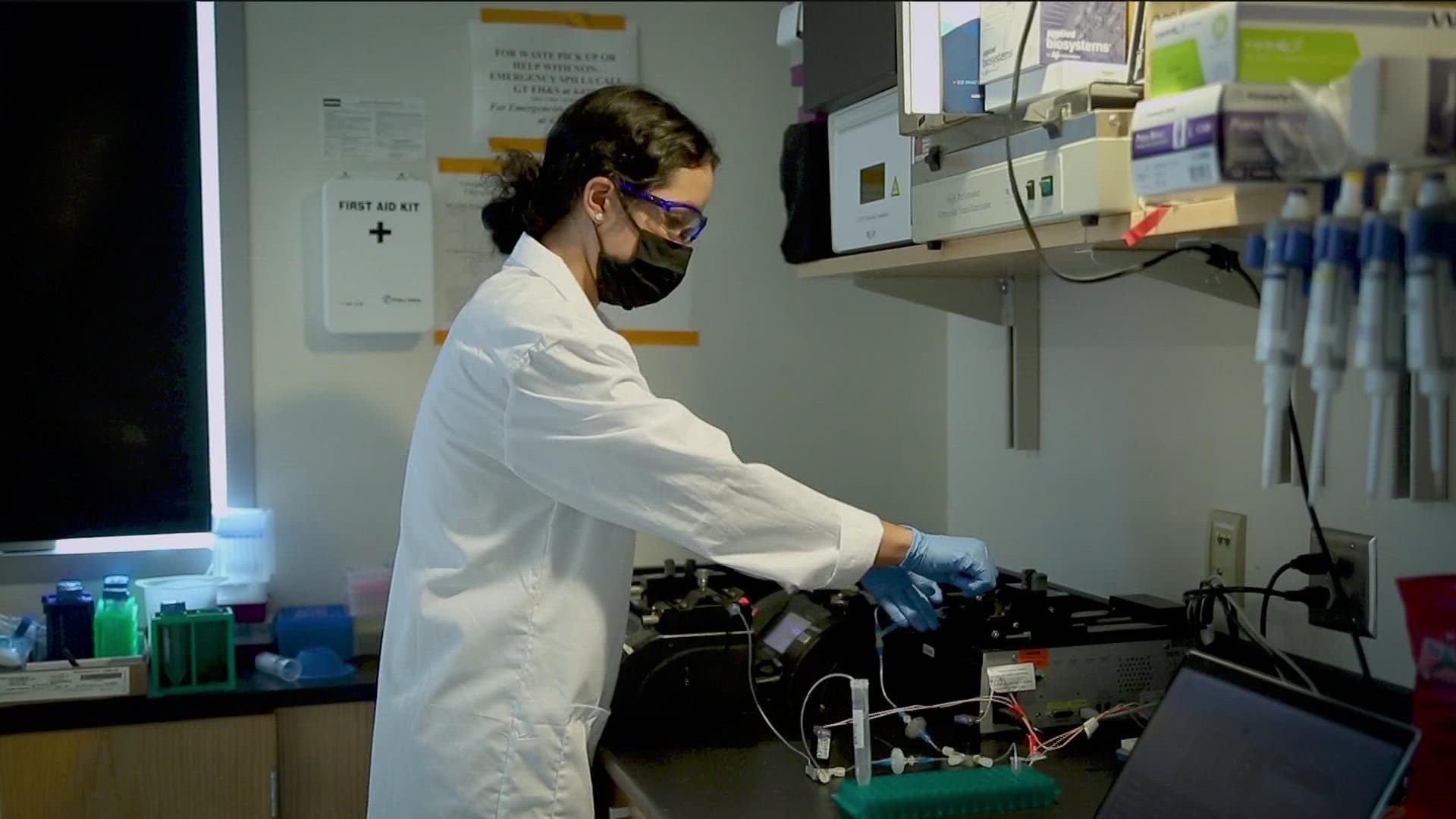ATLANTA — A device that scans the air of a building for COVID-19 particles is being developed by some of the brightest minds in Georgia.
Georgia Tech researchers have been working on the SenSARS technology since the beginning of the pandemic. Researchers say they’re close to making the idea a reality.
“Our idea was to develop a system that provides early warning for the presence of infectious disease rather than the typical, you know, human diagnostics which are very complex and time consuming, and results can take hours or even days," said Mike Farrell, a principal research scientist leading the project.
Farrell says ideally, the technology will look like this:
A COVID positive person shows up to your building, office, or school. They cough, or sneeze – or even just start talking. Within 15 minutes, an alert goes out confirming COVID has been detected in the building.
“We've shown that we can detect as little as 1,000 virus particles and get a response," Farrell said. "That's a very, very low infectious dose in the in the air.”
The research team spent years perfecting the technology. Farrell says they are currently building the prototype.
"We think we're getting very close," he said. "We're very excited”
He noted that the applications of such a device exceeds just scanning for COVID-19. it could be used to detect other diseases and pathogens, too.
"This system can be easily modified to accommodate any pathogen of interest," Farrell said. “Avian, influenza virus or swine flu, foot and mouth disease, biological warfare agents. It's been fascinating. I've learned a lot and I think we're on a really great path here.”
Once they have the working prototype, the team will look for funding to perfect and manufacture the sensors.
Farrell said one could be installed in your building in as soon as three years.
"I feel very confident that we can approach a sponsor," he said. "What we're doing is the holy grail of pathogen detection.”

